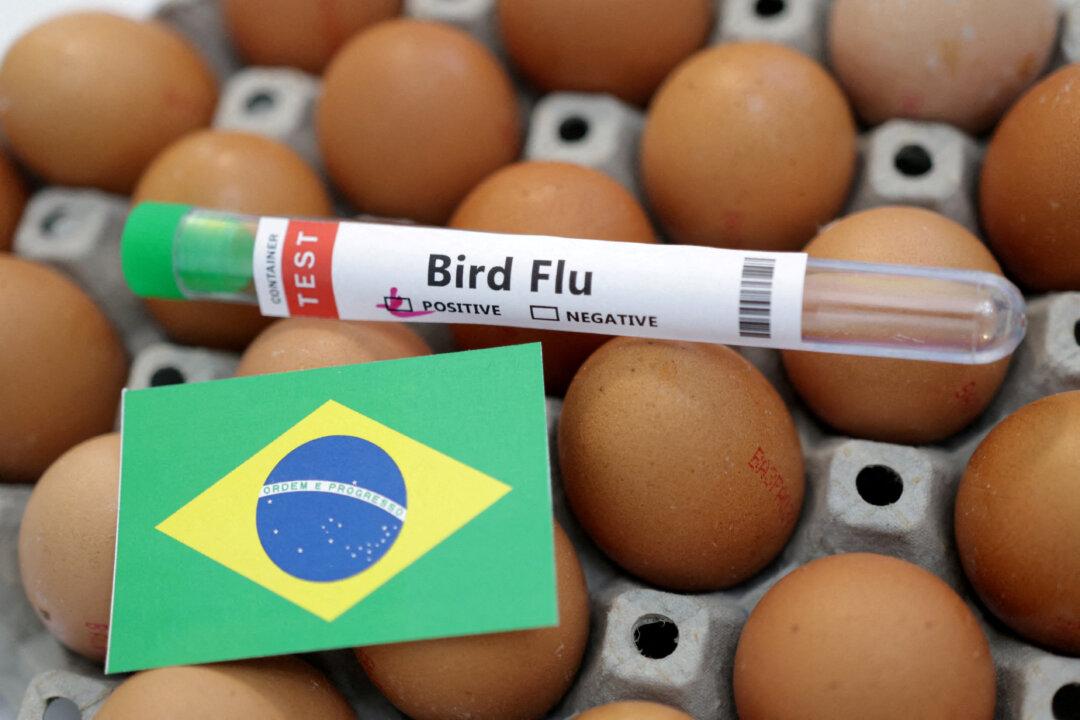SAO PAULO—Brazil on Monday declared a state of animal health emergency for 180 days in response to the country’s first ever detection of the highly pathogenic avian influenza virus in wild birds, in a document signed by Agriculture Minister Carlos Favaro.
Infection by the H5N1 subtype of avian flu in wild birds does not trigger trade bans, based on guidelines of the World Organization for Animal Health. However, a case of bird flu on a farm usually results in the entire flock being killed and can trigger trade restrictions from importing countries.





